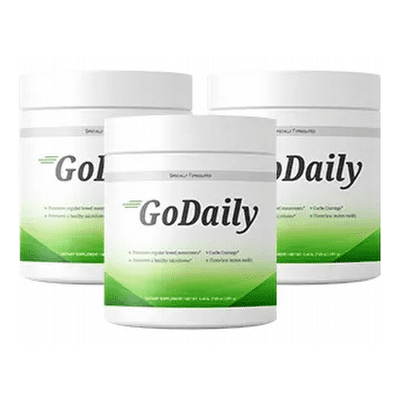Looking for effective strategies for improving gut health naturally? Discover 10 expert tips to optimize your digestive system and enhance overall well-being.
Probiotics Are Your Gut Health Ally: A Comprehensive Guide
Gut health has received significant attention in recent years and for good reason. Our gut plays an integral role in overall well-being, from digestion to immunity and mental wellbeing. Probiotics offer one natural means of improving gut health – these live bacteria and yeasts have long been recognized for assisting digestive function when consumed in sufficient amounts. In this article we’ll dive deep into their world while uncovering their advantages for gut health, immune support, mental wellbeing and much more!
Key Takeaways
Probiotics are live bacteria and yeasts that can provide many health benefits for the gut. Probiotics work by restoring the natural balance of bacteria within your gut environment, improving digestion, immunity and even supporting mental wellbeing.
Finding and adding probiotic supplements and foods into your diet can reap numerous advantages, and more research indicates their possible future benefits may even expand further.
What Are Probiotics and How Do They Work?

Probiotics can be defined as live microorganisms that provide many health advantages when consumed in sufficient amounts. Probiotics work by colonizing our gut and supporting its balance with good bacteria. When we take probiotic supplements through food or supplements, these microorganisms travel through our digestive tract until reaching our intestines where their effects begin.
There are various probiotics on the market today, each offering distinct properties and benefits. Common ones include Lactobacillus acidophilus, Bifidobacterium bifidum, Streptococcus thermophilus and Saccharomyces boulardii; each type has been extensively researched for its effects on gut health.
Probiotics Benefit Gut Health
Probiotics offer numerous digestive health advantages, with improved digestion being one of the primary ones. Probiotics contain beneficial bacteria that aid in breaking down food particles more effectively while aiding nutrient absorption from the intestines into bloodstream, leading to less bloating, gas, constipation or diarrhea symptoms.
Probiotics have also been shown to decrease inflammation levels within the gut lining, which can contribute to conditions like IBS or IBD. By decreasing these inflammation levels in your digestive tract, probiotics may help relieve symptoms while simultaneously improving overall gut health.
Probiotics play an essential role in improving nutrient absorption. By breaking down complex carbohydrates, proteins and fats into smaller molecules that our bodies can readily absorb, probiotics ensure we receive maximum nutritional benefit from what we eat.
Probiotics have also been found to prevent harmful bacteria growth within the gut by populating it with beneficial bacteria that make an environment that’s less favorable to pathogenic flora, decreasing your risk of infections or other gastrointestinal conditions.
How Probiotics Can Strengthen Your Immune System
Benefit Description
Increased antibody Production Probiotics can stimulate antibody production to help combat harmful bacteria and viruses.
Reduced Inflammation Probiotics may help decrease inflammation in the body, improving immune function and decreasing chronic diseases risk.
Improved Gut Health Probiotics have also been shown to support better gut microbiome health – essential components in supporting immunity.
Enhance Immune Response Probiotics can enhance immune response by activating more immune cells and improving communication among cells.
Probiotics Can Lower Risk of Infections | Probiotics can significantly decrease the risk of infections such as respiratory illnesses, urinary tract infections and gastrointestinal infections.
Our gut health and immune system share an intricate relationship. A majority of our immune system resides within our GI tract, making maintaining a balanced environment vital in strengthening immunity. Probiotics play an essential role in maintaining this equilibrium for us all to thrive!
Probiotics stimulate the production of antibodies which are critical in protecting our bodies against pathogens and infections, while simultaneously increasing natural killer cell activity that identifies and destroys cancerous or infected cells within us.
Research studies have established a connection between probiotics and immunity. A Journal of Nutrition study demonstrated this effect by showing individuals who regularly consumed Lactobacillus casei had increased levels of certain immune cells compared with those who didn’t consume any probiotics at all.
Probiotics Are Crucial for Mental Health
Recent years have witnessed increased attention given to the relationship between gut health and mental well-being, due to new research into what’s referred to as the “gut-brain axis.” This axis refers to bidirectional communication between our central nervous system (brain) and enteric nervous system (gut).
Probiotics have been shown to positively impact mental health by stimulating neurotransmitter production within the gut such as serotonin – often known as the “happy hormone.” Serotonin plays an essential role in maintaining our moods, with imbalances associated with depression or anxiety.
Studies have uncovered evidence supporting the relationship between probiotics and mental health. One such research paper published by Gastroenterology revealed that individuals consuming Bifidobacterium longum probiotic had lower symptoms of depression than those not taking any probiotic supplements at all.
Selecting an Appropriate Probiotic Supplement
Choosing a probiotic supplement requires considering several key factors. First and foremost, it is crucial that any supplements contain strains of bacteria which have been extensively researched for their beneficial effects on gut health; such strains include Lactobacillus acidophilus, Bifidobacterium bifidum and Saccharomyces boulardii – some common examples.
CFUs refer to the number of viable bacteria or yeasts within each dosage; higher CFU counts tend to indicate more potency; however, it’s important not to exceed recommended dosages as this could lead to adverse side effects.
Reading probiotic supplement labels can be intimidating with all their technical terms and jargon. When purchasing probiotic supplements, make sure that their labels clearly state which strains are present as well as CFU counts per serving size and any additional ingredients or allergens present that could potentially pose issues for you personally.
Integrating Probiotics Into Your Diet
Probiotic-rich foods that you should include regularly in your diet include yogurt (with live active cultures), kefir (a fermented milk drink), sauerkraut (fermented cabbage), kimchi (Korean fermented vegetable dish), and tempeh (fermented soy product).
For an easy way to add probiotic-rich foods into your diet, add yogurt or kefir as part of your breakfast routine, sauerkraut or kimchi can also make great side dishes at lunch or dinner – experiment with various recipes using these ingredients until you find something that meets your individual taste preferences.
If you prefer not to consume dairy or are on a vegan diet, there are numerous non-dairy options such as coconut milk yogurt and almond milk kefir that can provide some of the same beneficial bacteria found in traditional dairy-based products.
Prebiotics Are Essential in Promoting Probiotic Health
Prebiotics are an integral component of probiotic health. Prebiotics can be defined as non-digestible fibers that serve as food for beneficial bacteria within our gut, providing energy for our probiotics to thrive and exert their positive influence on health.
Foods high in prebiotics include garlic, onions, leeks, bananas, oats and Jerusalem artichokes. When included as regular fixtures in our diets, prebiotics help support probiotic growth in our gut.
Probiotics as a Natural Solution for Digestive Disorders: An Analysis
Digestive disorders like Irritable Bowel Syndrome (IBS), Inflammatory Bowel Disease (IBD), and Gastroesophageal Reflux Disease (GERD) can have an enormous negative impact on an individual’s quality of life, but probiotics provide a natural approach for managing these conditions.
Probiotics have been shown to effectively treat digestive disorders by decreasing inflammation levels within the gut lining and creating an ideal balance of bacteria within our intestines.
Studies on probiotics’ efficacy against digestive disorders have consistently supported their use. A 2013 American Journal of Gastroenterology study, for instance, concluded that individuals who consumed Bifidobacterium infantis probiotic strain experienced less abdominal pain and bloating compared to those who did not take any.
Probiotics Are Vital to Children’s Health
Probiotics aren’t only good for adults; they’re also beneficial to children’s digestive health. Establishing a healthy balance of bacteria within their gut during childhood can have long-lasting impacts on overall health and wellbeing.
Probiotics have proven themselves useful in supporting children’s gut health, by aiding digestion, decreasing risks for gastrointestinal infections and strengthening immunity development. Furthermore, probiotics have also been shown to alleviate symptoms associated with colic, constipation and diarrhea among infants.
Studies have provided convincing evidence to support the use of probiotics for children. A Pediatrics study, for instance, revealed that infants receiving Lactobacillus rhamnosus GG had a significantly reduced risk of eczema than their counterparts who did not take probiotics at all.
When selecting probiotics for children, it’s essential to take their age and specific requirements into account. Consult a healthcare professional or pediatrician in order to establish which strains and doses would be suitable based on his/her individual circumstances.
Probiotics and Weight Management: What You Should Know
Weight management can be challenging for many individuals; probiotics may provide an additional aid in this regard due to their impact on metabolism and appetite control.
Probiotics help manage weight by altering our energy balance through various mechanisms, including increasing satiety (feeling fuller for longer), decreasing fat storage, improving insulin sensitivity (how our bodies respond to insulin), and increasing fat oxidation (how our bodies burn fat).
Research studies have consistently confirmed the correlation between probiotics and weight management. One such study published by The British Journal of Nutrition showed that individuals consuming Lactobacillus gasseri probiotic experienced significant decreases in body weight, waist circumference and fat percentage as compared to those who did not take any probiotic supplements at all.
To incorporate probiotics into a weight management plan, try including fermented foods or supplements in your daily diet and physical activity routine for best results. Additionally, strive to include whole food diet and regular physical activity for maximum effectiveness.
Probiotics in the Future: Emerging Research and Trends
Probiotic research continues to develop as researchers gain new insight into its potential health benefits for human beings. Current investigations include investigating specific strains’ roles in managing conditions like diabetes or cardiovascular disease; how probiotics influence skin health; and whether personalized medicine could use probiotics.
Emerging trends within this field include the creation of more tailored probiotic supplements to address specific health needs or age groups, for instance those specifically developed to support infants or pregnant women during their pregnancies.
As part of a growing trend, researchers are exploring innovative delivery methods for probiotics. While traditional forms like capsules or tablets may work just fine, researchers are exploring other strategies such as microencapsulation or genetically modifying certain strains in order to increase survival rates within our digestive systems.
Probiotics hold tremendous promise for our future health as we discover their full potential and explore applications across various fields of medicine and wellness.
Probiotics have many health advantages that are well worth including in our daily routines, from supporting digestive health and immunity, mental wellbeing and weight management, as well as overall well-being. Probiotics work by creating an ideal environment in our gut that fosters beneficial bacteria which has far-reaching ramifications on all areas of health.
When choosing probiotic supplements or adding natural sources into your diet, it’s essential to take several factors into account, including strain specificity, CFU counts and individual needs. Consulting a healthcare provider or registered dietitian for personalized advice tailored specifically for you may provide additional insight and direction.
Prioritizing gut health through probiotic use can be an invaluable way of improving our overall health and wellbeing. So don’t wait; incorporate probiotics into your daily routine today and reap their many advantages for years to come!
FAQs
What Are Probiotics? Probiotics are live microorganisms which can benefit both our digestive health and overall wellness. You can often find probiotics in fermented food products and dietary supplements.
How Do Probiotics Work
Probiotics work by restoring the natural balance of bacteria in your gut. This allows them to improve digestion, boost the immune system, and decrease inflammation.
What are the advantages of taking probiotics?
Probiotics have been scientifically demonstrated to benefit digestive health, boost immunity, reduce inflammation and even enhance mental wellbeing. Furthermore, probiotics may even help prevent and treat certain illnesses and diseases.
Where can I find natural sources of probiotics?
Sources of natural probiotics include yogurt, kefir, sauerkraut, kimchi, miso and tempeh; these fermented foods contain live cultures of beneficial bacteria.
Can probiotics be harmful?
Probiotics are generally safe for most individuals to take; however, in rare instances they may cause mild side effects like bloating, gas or diarrhea. People with compromised immune systems or serious health conditions should consult a physician prior to taking probiotics.
How can I select a probiotic supplement?
When selecting a probiotic supplement, seek one with multiple strains of beneficial bacteria and proper storage conditions so the live cultures remain active. Furthermore, make sure you purchase from a reputable brand and follow its recommended dosage recommendations.


